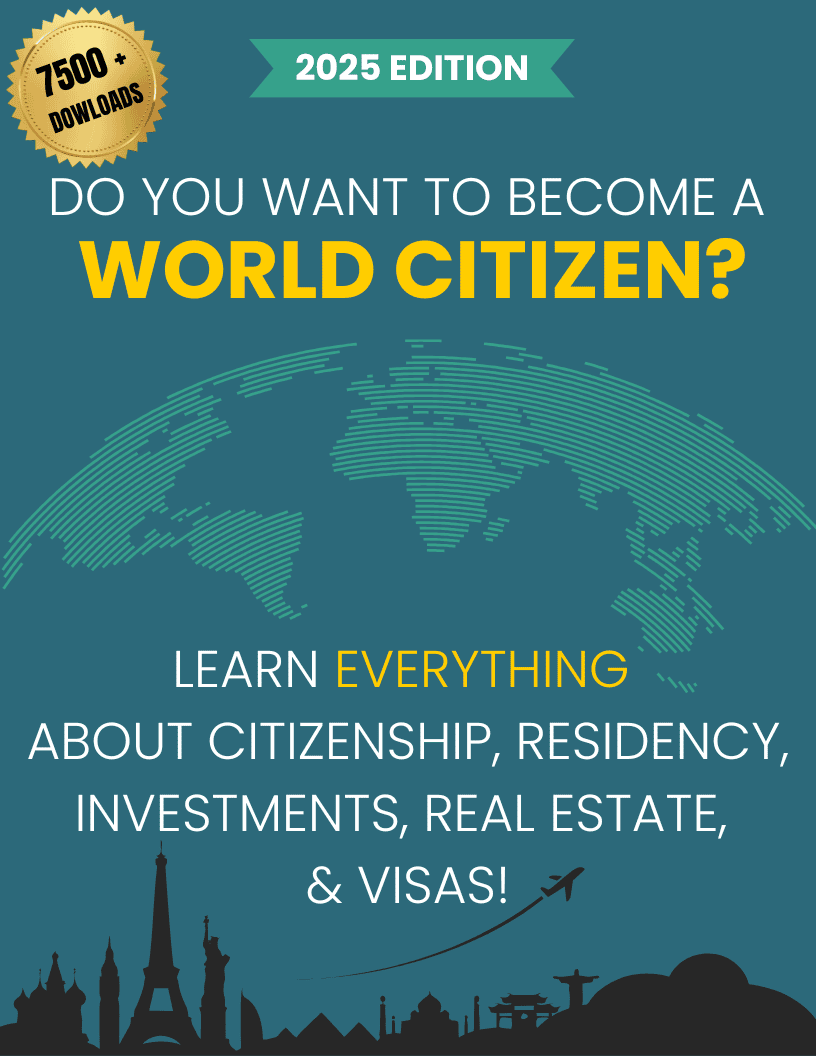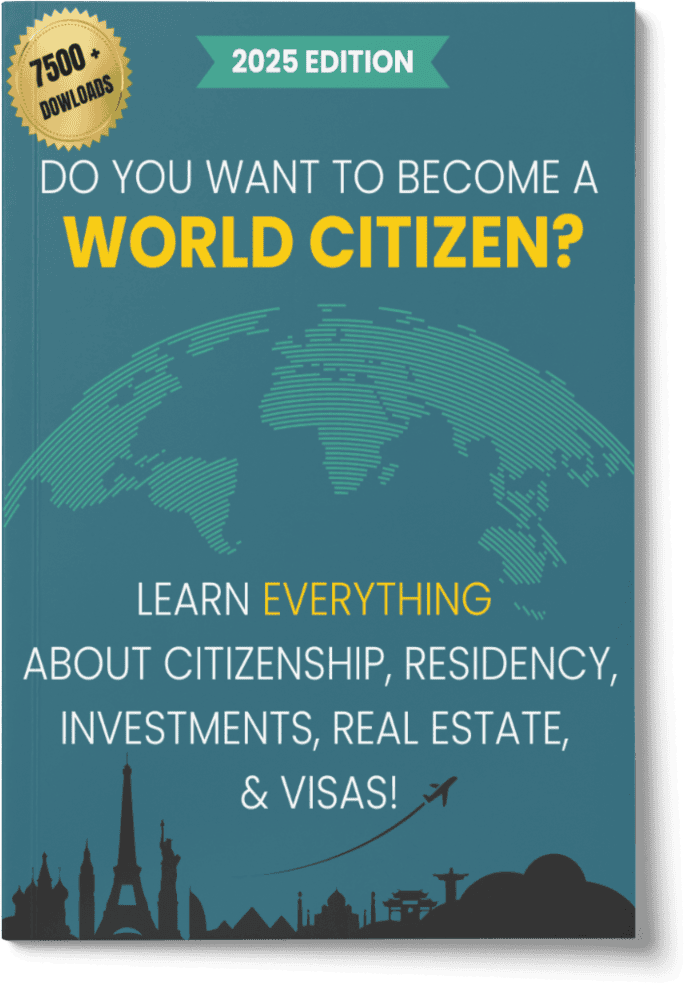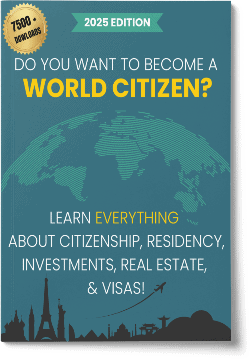Understanding Visa Costs: A Financial Guide
Boost Your Freedom Without Compromise.
- Who offers the CHEAPEST program available.
- Who offers the BEST program available.
- What you need to qualify?

- The fees associated with visa applications can vary widely depending on the visa type, the applicant's nationality, the country of application, and the duration of the visa. Common costs include application, processing, and potentially additional charges for expedited processing.
- Visa costs can differ significantly by type—tourist, student, work, and immigrant visas each have different fee structures. Duration of visa validity and reciprocity agreements between countries can also affect the price.
- Beyond the application fee, potential additional costs in the visa application process may include health examinations, biometrics collection, courier services for document submission, and legal or consultancy fees.
- Applicants can typically pay through various methods offered by the embassy or consulate, such as bank transfers, credit card payments, or in-person payments. Whether they are refundable depends on the country's visa policy, but most are non-refundable once the application is processed.
- Financial planning for visa applications should account for all potential costs, including unforeseen expenses, to ensure the process does not stall due to financial constraints.
Have you ever wondered how traveling the globe can enrich your perspective but felt discouraged by visa fees?
Navigating the world of visa costs can seem complex, especially for budget travelers.
Yet, with the right strategies, you can manage these expenses effectively.
In This Article, You Will Discover:
In our expertly researched guide, we'll demystify the factors affecting visa prices and offer tips for saving on them.
Read on…
*Disclaimer: All amounts quoted in this article were correct and accurate at the time of publication and may have shifted since.
- Who offers the CHEAPEST program available.
- Who offers the BEST program available.
- What you need to qualify?
 Free Consultation
Free Consultation Easy to Use
Easy to Use 100% Safe & Secure
100% Safe & Secure
What Should You Know About Visas and Their Costs?
Discover the essential aspects of visas, including the varying costs associated with their application and processing across different countries and visa types.
What is a Visa?
A visa is an official document issued by a country's government that grants permission for a foreigner to enter, stay, or transit within its borders.
It specifies the purpose of the visit, duration of stay, and other conditions.
Visas are crucial for international travel and help regulate immigration policies.
What are Visa Costs?
Visa costs refer to the fees associated with obtaining a visa for entry into a foreign country.
These fees vary depending on factors such as the type of visa, the applicant's nationality, and the processing time.
Visa costs cover administrative expenses related to visa processing and are non-refundable in many cases.
What Factors Influence Visa Fee Variations by Country?
You might be wondering why visa fees are so expensive.
There are 4 main factors influencing visa fees.
Let’s see:
How Do Visa Costs Vary by Country?
Bilateral relations, demand, and other socio-economic factors influence every country's visa pricing structure.
For instance, tourist visas for countries with high demand might be pricier than those less frequented, as the table above shows.
Similarly
Some countries might have higher visa fees for certain nationalities based on reciprocity or diplomatic tensions.
It's always a good idea to check the visa pricing for your specific nationality before making travel plans.
Different countries have varying visa pricing for different nationalities, and it's important to be aware of these costs before booking any flights or accommodations.
Additionally, it's also important to consider the visa tax implications for your specific nationality, as these can also greatly affect the overall cost of your trip.
By thoroughly researching and understanding the visa pricing and tax implications, you can avoid any unexpected financial burdens and enjoy a stress-free travel experience.
How Do Duration and Entries Affect Visa Fees?
Some visas can be single-entry or multiple-entry, and the fee might differ accordingly.
Similarly, a visa with longer validity may be more expensive.
What Are the Charges for Expedited Visa Processing?
There are typically 2 main types of processing times: regular and expedited.
Regular processing is the most common, and it often takes a few days to a few weeks, depending on the country.
Expedited processing is for travelers who need a visa on short notice.
As a rule of thumb, expedited visas can cost significantly more than their regular counterparts due to the quicker turnaround time.
How Do Different Visa Application Channels Impact Costs?
Where and how you apply for a visa can also affect its cost.
Here’s how:
- Online: There are now many countries that offer e-visas. You can apply for those online. These can sometimes be cheaper as they cut down on administrative costs.
- Through embassies: Applying directly through an embassy might involve additional administrative fees or service charges.
- Visa agents: While they offer the convenience of handling your application for you, visa agents will charge a service fee on top of the visa cost.
What Are the Components of Visa Fees?
It’s vital to understand which fees you’ll need to pay when getting a visa to travel globally.
Do note that the type of visa you’re applying for, as well as the country of application, will also directly influence the overall cost.
Below, we’ve listed some possible visa fees you might encounter:
- Processing fees: Some countries have standard application fees, while others may charge additional fees for expedited services, biometrics, or other services.
- Agency or legal fees: If you use a visa agency or an immigration lawyer to assist with your application, they’ll charge for their services. These fees can vary widely based on the reputation, location, and specific services the agency or attorney offers.
- Supporting documentation fees: You might need to provide additional documents such as police clearance certificates, health examinations, or proof of financial support. Obtaining these documents might come with their own fees.
- Translation and notarization fees: If your original documents aren’t in the official language of the country you’re applying to, you may need to get them translated and notarized, which can add to the cost.
- Courier or mailing fees: Some visa applications may require secure mailing or courier services to send and receive documents.
- Interview fees: Some visa types, especially for longer stays or specific purposes like work or study, might require an in-person interview at a consulate or embassy. While the interview might not have an associated fee, travel and incidental expenses could exist.
- Visa extension or adjustment fees: If you want to extend or adjust your visa status once you're in the country, there could be additional fees.
- Reciprocity fees: Some countries charge what's known as a "reciprocity fee." This fee is based on what another country charges its citizens; a tit-for-tat charge. For instance, if Country A charges $100 for citizens of Country B to obtain a visa, Country B might charge a similar "reciprocity fee" for citizens of Country A.
What Are the Standard Visa Fees by Type and Country?
Since the fees across the board vary, we’ve outlined some of the different countries’ fees for your convenience below.
Let’s take a look:
| Country | Visa Type | Cost |
| US1 | Tourist/Business Visa (B1/B2) | US$160 |
| Work Visa (H-1B) | US$460 | |
| Student Visa (F-1) | US$160 | |
| Exchange Visitor Visa (J-1) | US$160 | |
| Canada2 | Visitor Visa | CAD$100 |
| Study Permit | CAD$150 | |
| Work Permit | CAD$155 | |
| UK3 | Standard Visitor Visa (up to 6 months) | £95 |
| Student Visa (up to 6 months) | £97 | |
| Work Visa (General) | £610 - £1,408 | |
| Australia4 | Tourist Visa (Subclass 600) | AUD$145 - AUD$1,065 |
| Work Visa (Subclass 482) | AUD$1,265 - AUD$2,645 | |
| Student Visa (Subclass 500) | AUD$620 | |
| Schengen5 | Short-Stay Visa | €80 for adults, €40 for children aged 6-12 |
| Long-Stay Visa | Prices vary by country in the Schengen Region. |
How Can You Save on Visa Application Fees?
Saving money where possible is always a good idea, especially when traveling and having many expenses.
Let’s explore 4 ways you can save money safely.
How Can Early Applications Reduce Visa Costs?
The early bird catches the worm, as they say!
Planning your trip is thus one of the simplest strategies to save money.
You can save money by applying early and avoiding higher charges for accelerated processing.
Plus
If you have any unforeseen issues with your application, you have ample time to rectify them without resorting to rush fees.
Do Group Applications Offer Cost-Saving Benefits?
The more, the merrier!
If you're traveling with family or as part of a group, explore visa fee structures for groups.
Some countries offer discounts for families or groups applying together, which can lead to substantial savings, especially for larger groups or families.
How Does Using Visa-Free Transit Save on Fees?
Some countries offer visa-free transit for short stays, typically 24, 48, or 72 hours.
If you're just passing through or planning a short trip, this can be a cost-effective way to explore a new place without the hassle and expense of a full visa application.
Always check the specific rules for visa-free transit, as overstaying even by a few hours can lead to hefty fines.
How Effective Is Monitoring Visa Fee Waivers for Saving Money?
Occasionally, countries may offer promotional visa fee reductions or waivers to boost tourism or strengthen diplomatic ties.
For instance
In the wake of the COVID-19 pandemic, several countries offered discounted or waived visa fees to attract tourists.
Staying updated with such promotions can lead to unexpected savings on your travel plans.
Common Questions
Why Do Visa Prices Vary So Much?
Are Visa Fees Refundable if My Application Is Denied?
Can I Get Discounts for Multiple-Entry Visas?
What Hidden Charges Should I Be Aware Of?
Is There a Difference in Fees Between Single-Entry & Multiple-Entry Visas?
How Often Do Visa Fees Change?
Do Bilateral or Regional Agreements Impact Visa Fees?
What Payment Methods Are Accepted Globally?
In Conclusion
Your understanding of visa fees may have a big impact on your travel budget.
While some factors are out of our control, you can make the most of every penny spent with some research and strategic planning.
Whether you're an occasional tourist or a seasoned traveler, staying informed and proactive can pave the way for more affordable and enriching adventures abroad.
Safe travels and happy savings!
- Who offers the CHEAPEST program available.
- Who offers the BEST program available.
- What you need to qualify?
 Free Consultation
Free Consultation Easy to Use
Easy to Use 100% Safe & Secure
100% Safe & Secure







